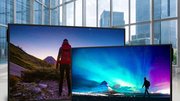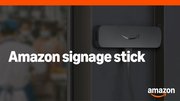Article
A self-service music Mecca in New York
The Virgin Megastore in New York recently launched the "Virgin Vault" program, which uses 150 kiosks to serve up product information, movie clips and audio samples — for any product in the store. It's one of the largest single-store kiosk deployments in the world, and customer response has been enthusiastic.

November 20, 2005 by James Bickers — Editor, Networld Alliance
A store that offers a lot of choices is a great boon for the shopper — after all, as the number of products in a store increases, so does the chance that each customer will find exactly what he is looking for.
But greater numbers of products means greater amounts of product data, and when you're dealing with a complex, multifaceted segment like entertainment, sifting through that information quickly becomes a challenge.
Years ago, the owner of a record shop likely listened to most of the albums he sold, and could tell you whether he thought you would like a given disc based on some other things you enjoy. Those days are long gone, if only because the sheer number of CDs and DVDs released each week makes it impossible for store personnel to be comprehensively steeped in what's new.
Virgin Megastore's "Virgin Vault" program might just be a blueprint for how to handle this information overload. The New York store, recently equipped with 150 product info kiosks, enables customers to help themselves to information without putting a burden on the staff.
The New York Megastore looks very much like a "store of the future," and according to Robert Fort, director of information technology for Virgin Entertainment Group, North America, that's no accident.
"We clearly see it as part of our future design," he said. "And that's why we picked a platform from which we can easily deploy new features and applications. We can expand the information-providing capabilities. We can introduce digital downloads or other e-commerce directly from the kiosk and integrate it with our POS. We can introduce vendor advertising and other in-store entertainment vehicles."
What's on the sales floor
 Virgin's New York store had previously dabbled with info-dispensing kiosks, but only on a "toes-in-the-water" scale. Before the Virgin Vault deployment, there were 20 freestanding kiosks throughout the store, and "a whole bunch of listening stations," according to IBM retail executive consultant Dan Hopping.
Virgin's New York store had previously dabbled with info-dispensing kiosks, but only on a "toes-in-the-water" scale. Before the Virgin Vault deployment, there were 20 freestanding kiosks throughout the store, and "a whole bunch of listening stations," according to IBM retail executive consultant Dan Hopping.
Today, 150 IBM Anyplace Kiosks fill the store, some wired, some wireless. All of them pull product information from the same database, meaning that when a new CD is added to the system, it's available on all of the screens.
"They've done a very clever job of mounting them so that they're the right height and angle for the customer," Hopping said. "They've done a very good job of making the screens easy to navigate. This kiosk has an infrared touchscreen, so it doesn't get out of registration, so you can use it with fingernails or gloves. It's things like that that make it easy to bring it down and put it where customers are."
Fort said that previous Virgin listening stations were CD-player based, with only one to four titles at any one station. "Now the customer can listen to most CDs, view trailers for most movies, and see screen shots from most video game titles, from any digital station in the store."
That "any data, anyplace" approach not only makes things more convenient for the customer – who no longer has to be standing next to certain listening device in order to hear a certain audio sample — it represents serious cost savings for the store. Previously, store personnel were required to move physical CDs from one listening station to another, a task that Fort estimates took two to five hours every week. He said the company also saves money because it no longer has to open a copy of every title in order to load it into a player.
Fort said customer response has been overwhelmingly positive. "It's a joy to see customers' heads buried in headphones, listening away, scanning, browsing, searching. We see customers taking stacks of products from the aisles, going to a station, and listening through each to narrow down their purchase decision."
He said a family recently approached him in the store, a couple with three teenage boys, and told him, "We don't have anything like this in North Carolina." The boys found about a dozen titles each that they wanted to purchase, thanks to being able to preview them in an in-depth fashion.
Making it work
More research on these key terms: |
Hopping said IBM's role in the rollout was cut-and-dried. "This kiosk isn't something that takes a whole lot of planning — it's just a drop-in," he said. "The majority of the planning was in things like the application — what do you put on the screen for the customer?"
One enduring challenge arises from the wireless functionality of the kiosks, which operate on the 802.11(b) and 802.11(g) protocols — both commonly used in consumer electronic devices like PDAs and cell phones. So protecting the kiosks from interference with things in customer pockets is an ongoing concern.
"We're slowly coming up on a critical mass of consumers coming into the store that have (wireless) devices," Hopping said.
The answer? If you can't beat ‘em, join ‘em: Hopping said IBM and Virgin are working on making the product info application available on customer cell phones and PDAs.







